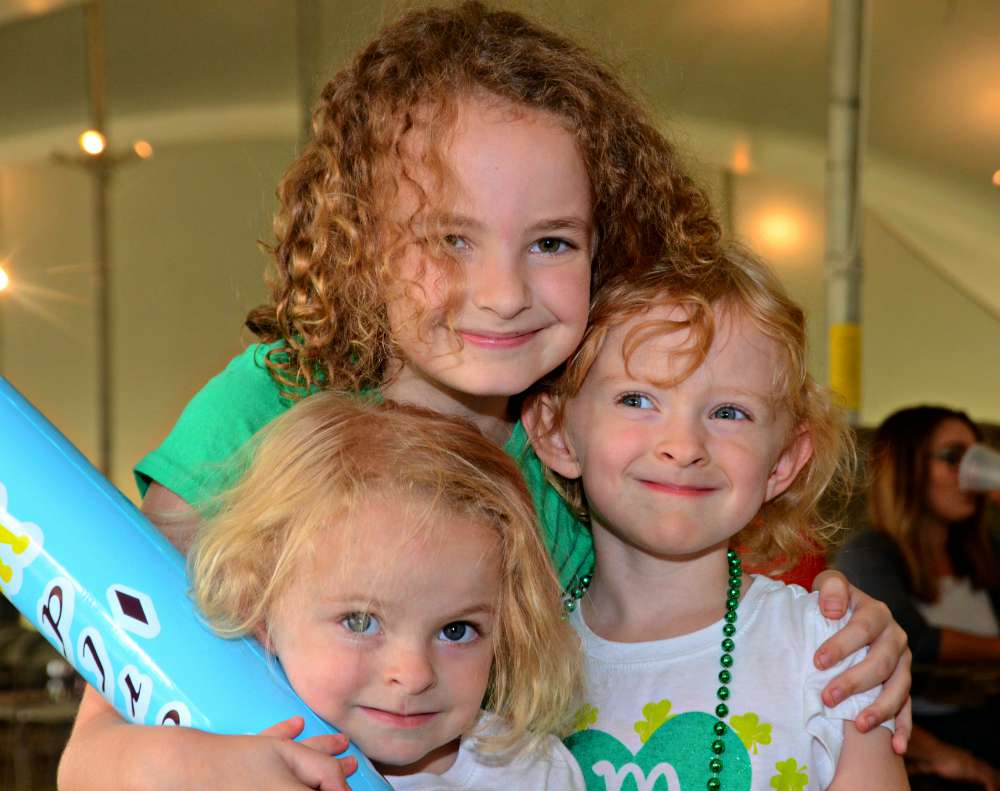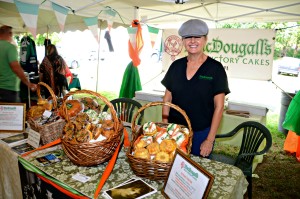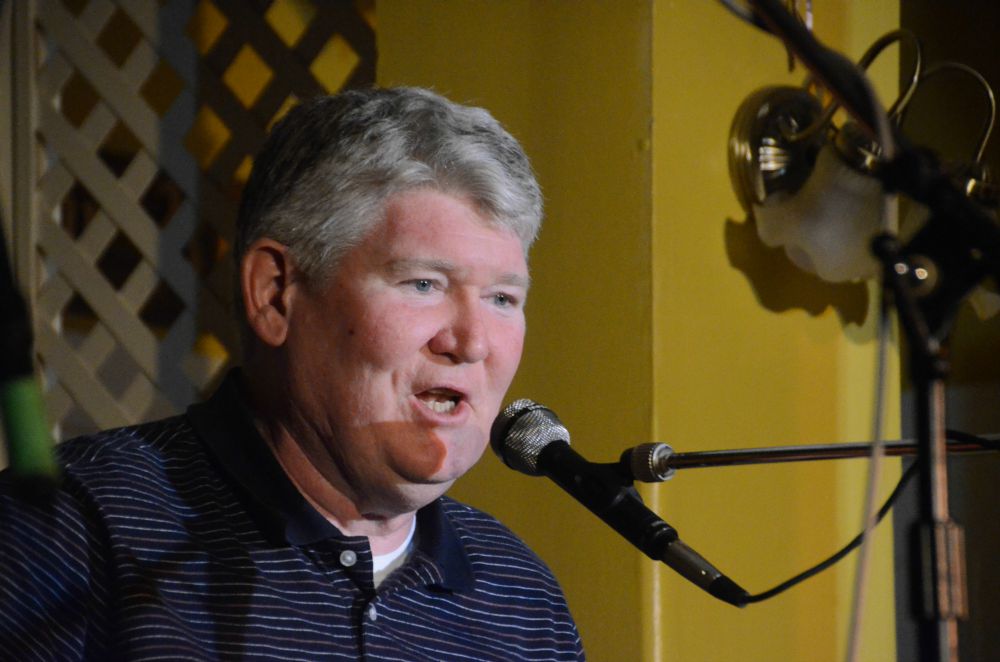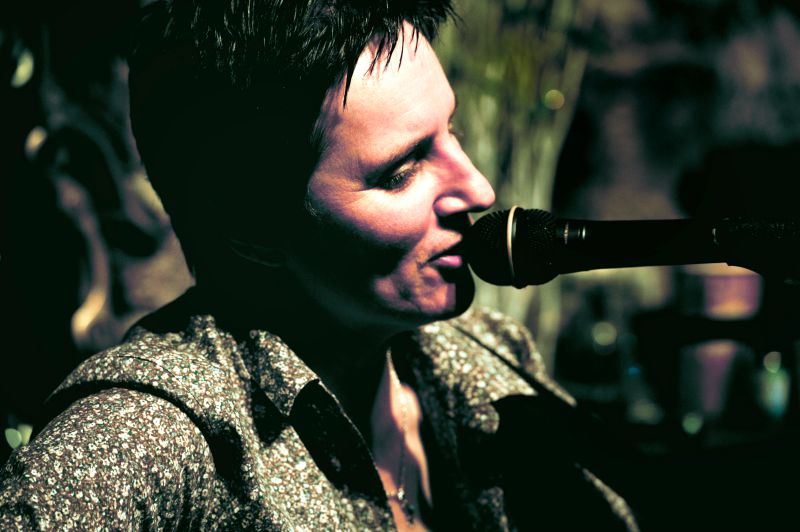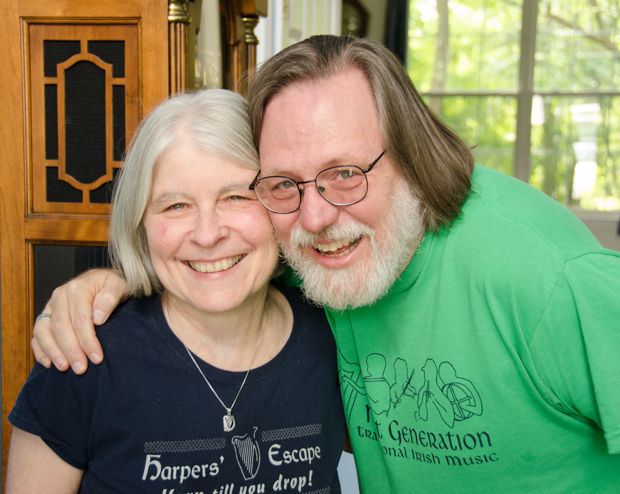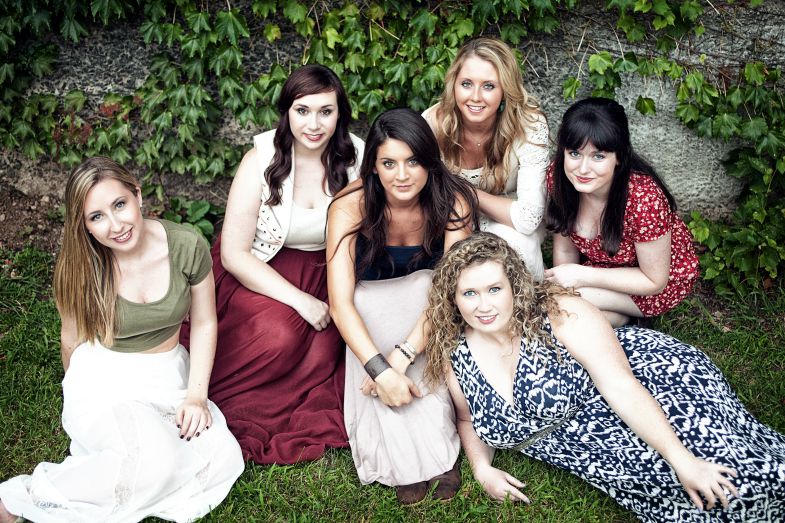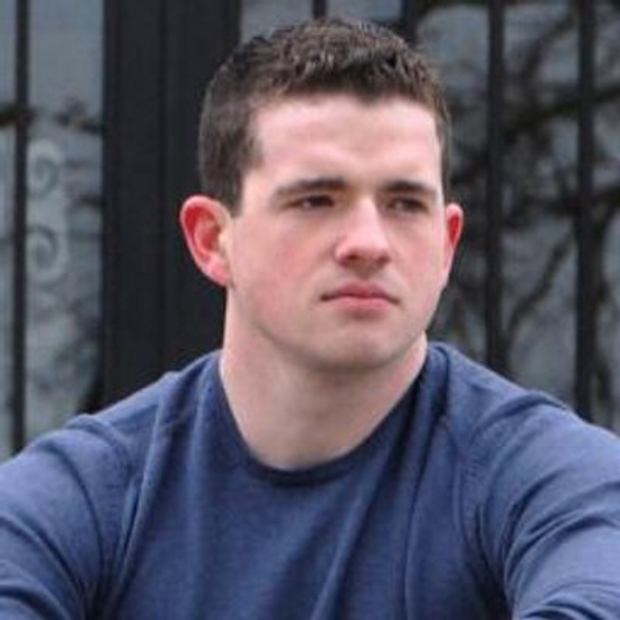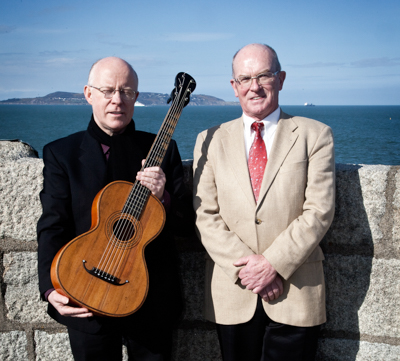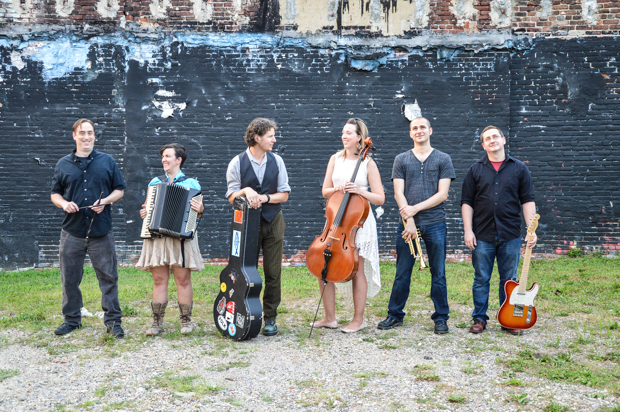
The John Byrne Band/ Photo by Lisa Chosed
A few years ago, not too long after the release of his first, critically acclaimed CD, “After the Wake, “ singer-songwriter John Byrne was assembling a playlist of new songs for a second when something happened that altered both his professional and personal path. It’s happened to all of us. Life intervened, in this case like a series of violent microbursts.
“I don’t think there was anything wrong with the songs,” he said not long ago, sitting in the livingroom of the Fishtown row home the Dublin native shares with his wife, Dorothy, and rescue dog, Frankie. “But then life took a few twists and turns and I suddenly realized I had more important things to write about.”
Over the past three years, he turned those more important things into the songs that make The John Byrne Band’s soon-to-be-released third CD, “The Immigrant and the Orphan,” such an emotional feast.
He runs through the litany of misfortunes, not all of which have been converted to lyrics: “I had an accident [playing indoor soccer] and broke my hip. I had a business setback. My Dad got sick. Dorothy and I were trying to have a baby—we were going through procedures every month which was like having another mortgage—and we went through a miscarriage which I now know is something that happens to a lot of people.”
It was author Anais Nin who said, “We write to taste life twice, once in the moment and once in retrospection.” John Byrne had a couple of years that he might not have wanted to taste again even in retrospection, but he did for this new release.
For his ailing father, whom he often calls “the original John Byrne,” he wrote “Sing on Johnny,” a modern day folk ballad with lyrics that find echoes in Dylan Thomas’s poem to his own father, “Do not go gentle into that good night.”
“Sing on, Johnny there’s a war ahead, sing on Johnny, there’s a battle ahead, when the wind blows ill just take a deep breath. Sing on Johnny in the salty wind, ‘cause you can’t get to heaven in a sinking ship.”
And he wrote two songs about a subject rarely explored in popular music, the complicated grief and heartache of infertility and miscarriage. “I thought it was something that needed to be written—for me,” said Byrne. While the lyrics may open a barely closed wound for those who’ve gone through it, the songs proved to be healing for him. “I’m a very private person in general, but as a writer the only way you can be really, really good and touch people is to get at the very raw nerve of some things.”
What he didn’t want to do is upset his wife. “I talked to Dorothy and said if I record these songs I’m going to play them live, and if I play them live I’m going to tell the story, at least initially, are you okay with that? Are you able to do it? If not, I’m going to have to rethink it.’”
Dorothy, who is usually found handling the band’s merchandise at concerts, was okay with it. Byrne has already played the songs at his ballad session at Fergie’s Pub and at the band’s sold-out CD preview concert at the Tin Angel.
“When we were at Fergie’s, I sang “Betsy Ross Bridge,” which we went over many times when we were getting fertility treatments in Camden. [Bandmate]Maura [Dwyer] said to me, how can you sing that song? The thing is, once you write it and use it to get through, rather than having an emotional response you step back from it. Then once you record it and play it enough times, it becomes a song that’s not just for you anymore. The more you play it, the more people start to hear it, the song gains another meaning, the one other people put into it. It becomes a shared experience, not a single experience, but one that many people have had.
That is not to say that every song on the new CD comes from personal experience. “Diamond and 4th,” a catchy melody and “a warped ass story I had in my head” is about a man who meets up with an old flame and thinks the fire might be rekindling—until she asks him for money. “There’s plenty of autobiography in that song, but no, my ex is not a hooker,” he says, laughing.
While Byrne is a fine musician and singer and has surrounded himself with a group of top musicians (multi-instrumentalist Andrew Jay Keenan, who also performs and records with Philly’s Amos Lee; fiddler-cellist Maura Dwyer; multi-instrumentalist Rob Shaffer; Dorie Byrne, who is no relation and who sings and plays everything from accordion to trombone; drummer Walt Epting; and Vince Tampio, who plays bass and trumpet), he is first and foremost a writer. “A lyricist looking for a tune, but I think I’ve gotten much better at the tunes,” he says.
He does share credit for one song on the new CD, a provocative break-up song called “Lie to You.” The tune came from his brother, Damien, “my favorite person in the world,” who had written different lyrics. Byrne tinkered with them, relying on the memory of a trip he took with an ex during which he realized that it just wasn’t going to work out.
While you may pick out parts of John Byrne’s life in his new songs, what you won’t be hearing are Irish tunes. The John Byrne Band got its start as a Celtic folk ensemble and even produced an Irish folk CD a year ago, thanks to fans across the country who were clamoring to take home some of the songs they’d heard during the band’s concerts.
“That helped us get a lot of Irish festival things, but what’s good about those songs is that people have heard us playing them and have followed us into our original stuff,” says Byrne. And it is clearly important to him as a songwriter to have fans hungering for his creative endeavors, and not just a novel arrangement of a favorite Irish trad or folk tune. “I’m not complaining,” he insists. “It’s gotten us on stage at the TLA and other great stages to open up for the big Irish bands [The Saw Doctors, The Young Dubliners, Gaelic Storm, Finbar Furey, Lunasa, Dervish, Luka Bloom, The Irish Tenors, to name a few]. It’s always, hey, let’s get the Irish guy.” He laughs.
Another departure for Byrne: For this new CD, he’s doing something he vowed never to do, which is use crowd-sourcing. He set up a Kickstarter campaign to pay for last half of the production costs. “I thought long and hard about it because we’ve generally paid for it ourselves, through CD sales, but it takes a while,” he explains. “I’ve never been afraid to put it all in myself because I believe in the album. . . But I was talking to Dorothy, who works for the Philadelphia Orchestra, and so much of her job is working with the patrons who give money to the orchestra. A large percentage of their money comes from these gifts. It’s how the arts have to run.”
He had also learned from an industry insider that there are people who use Kickstarter as a way to spot new talent and worthy projects “to get behind.” It seemed like a smart move. It still has a week to go and needs only a little more than $1,000 to hit its goal. You can donate here and get your preview CD.
Byrne is certainly no stranger to taking chances. A year after the band’s first CD, “After the Wake” debuted and started to get airplay locally at WXPN and around the country, he quit his teaching job to pursue music fulltime. Of course, he held on to his part-time bartending gig at Kelliann’s Bar and Grill in Spring Garden. The arts don’t pay that well.
“The money hasn’t changed for gig in a long time,” he says wistfully. “After the recession, luxury items went by the wayside a little bit and music is a luxury. Still, there are ways of making a living at it. You definitely have to hit the road.”
The Band has crisscrossed the country, picking up fans in the Midwest and New England, and in the pubs and venues in Ireland they hit when conducting tours for American music lovers.
But no matter what happens, Byrne says, he’ll have achieved his goal. “The only thing I’m really, really afraid of is regret,” he says. “I have some regrets of the things I’ve done and not done. I wish now that I’d pursued soccer a little harder. I regret taking defeats and letdowns too hard. I know I couldn’t be a happier person in later years if I didn’t give this a shot, a 100% shot. I can handle failure. I can totally handle failure. Not everything I’ve done has gone well. But if I can walk away and say I gave it the best I’ve got, that will be my success.”
“The Immigrant and the Orphan,” which is due for release September 19, is unlikely to fall into the “not gone well” column. John Byrne may be raising the bar on what he considers success.
You can hear The John Byrne Band on Sunday, August 16, during the Celtic Afternoon at the Philadelphia Folk Festival in Schwenksville. The CD release party for The Immigrant and the Orphan is on September 19 at the World Café Live, featuring Citizens Band Radio. Tickets are available on the WCL website and from the band.

